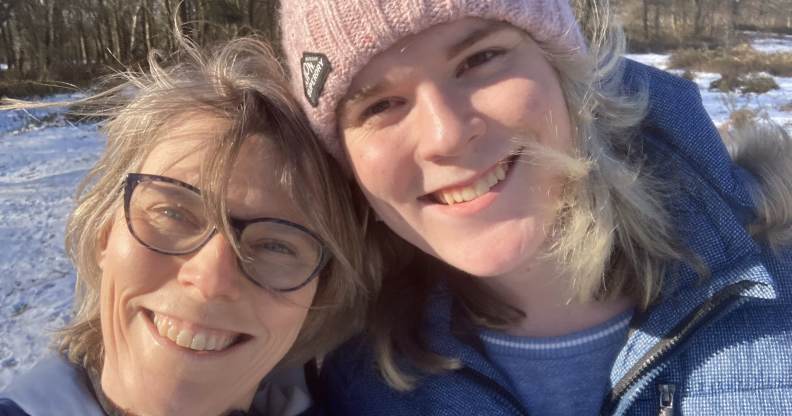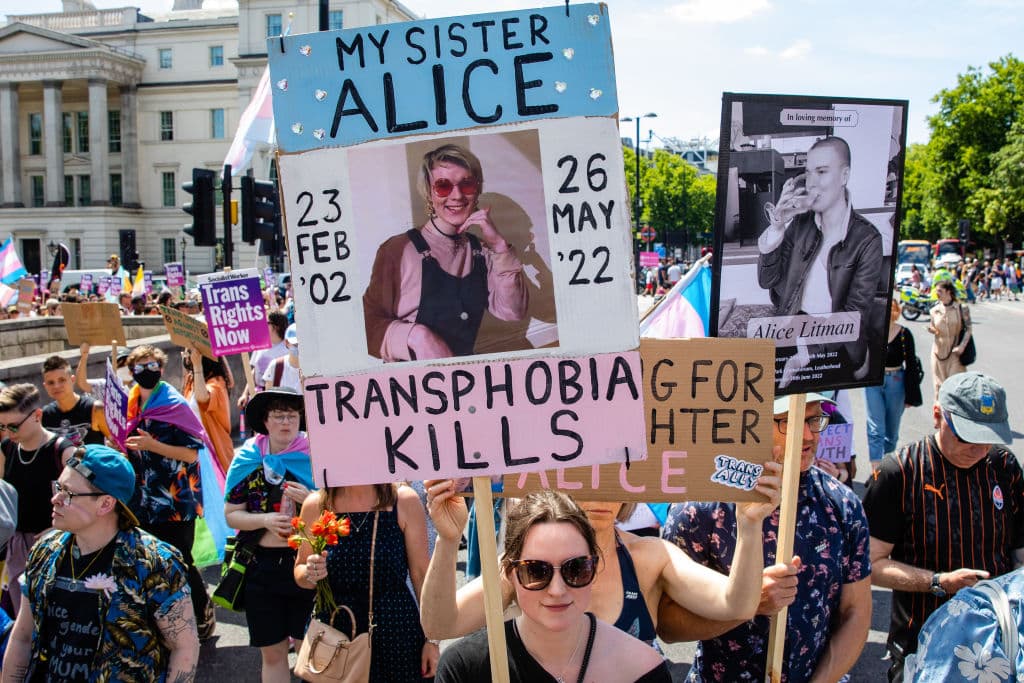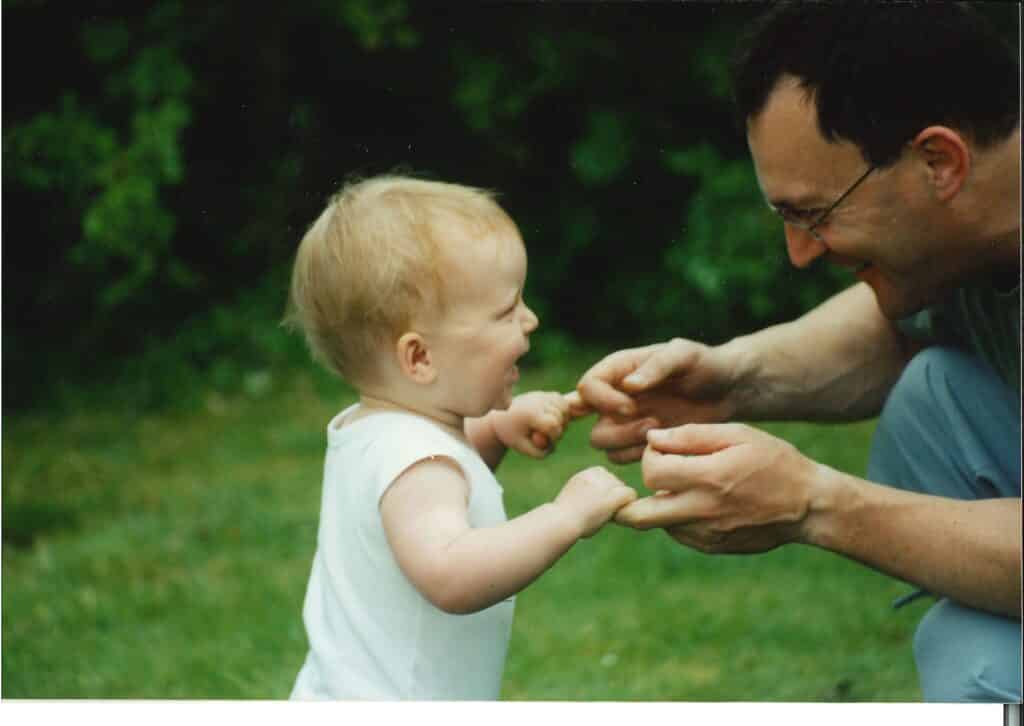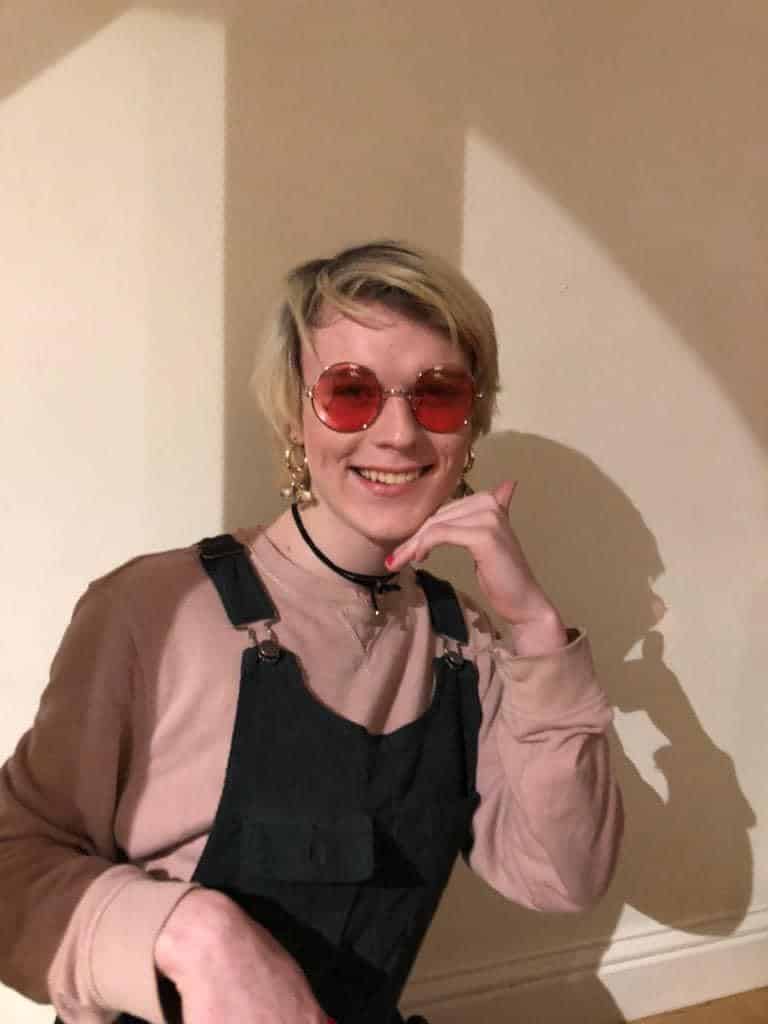My sister died after 1,023 days on an NHS waiting list. This is the reality of the ‘trans debate’

Alice Litman with her mum. (The Litman family)
Alice Litman died by suicide on 26 May, at the age of 20, having been failed by the state. Her sister, Kate Litman, shines a light on the political conditions of her death, and honours her memory.
This year at London Trans Pride, joy and celebration were underscored by pain and grief.
Thousands of people decked out in queer splendour marched carrying placards with messages such as “Trans is Beautiful” and “Trans Joy is Powerful”. At the same time, space was held to grieve trans lives that have been lost, with a minute of silence and a powerful speech from Lucia Blayke, who named transgender women who have been murdered or taken their own lives.
I joined the protest with my brother and parents and to march for our sister and daughter, Alice, who died by suicide on 26 May this year, at the age of 20. Alice was one of many who died while on an NHS waiting list to receive potentially lifesaving medical care.
In the days after Alice’s death, my mum spoke of her desire to send Alice’s ashes to the individuals who are so determined to make our world a hostile one for trans people. Without knowing it, my mum was echoing the ACT UP protests of the 1990s, where demonstrators threw the ashes of loved ones who had died from AIDS-related illnesses onto the lawn of the White House, to condemn the inaction of the US government in the face of the HIV/AIDS crisis.
Similarly, the artist David Wojnarowicz wore a denim jacket emblazoned with the words: “If I die of AIDS – forget burial – just drop my body on the steps of the FDA.”

The family at London Trans+ Pride. (Mark Kerrison/In Pictures via Getty)
I can’t lay Alice’s body at the steps of the Houses of Parliament or NHS England, but instead I will lay out something of her life, and can only hope that the institutions that failed her will answer for its loss.
Alice was a beautiful dancer, and it seemed she could shed her self-consciousness to move with fluidity and grace while music was playing. She had a warm sense of humour which was never unkind, and her gentleness distinguished her from the rest of her rough and tumble family. At her funeral, her friends remembered her as someone who was attentive to the needs of others and helped newcomers to feel welcome and at ease.
While Alice’s life was not without joy and love, the brutal truth that she died alone and in pain is inescapable. As my family has grappled with this reality, we have gone over and over questions which boil down to trying to understand why Alice chose death over life. We will never have a straightforward answer to this question, but we keep returning to the fact that Alice faced powerful external barriers to her flourishing; barriers which were structural and deliberate.
When Alice died, she had been on the waiting list to receive gender-affirming healthcare for 1,023 days and had not yet received her first appointment. She first sought medical support with her transition from her GP in September 2018, but was not referred to the Gender Identity Development Service (GIDS), which works with patients under 18, until nearly a year later in August 2019.
Alice’s GP advised her that waiting to receive healthcare was not such a bad thing, as she claimed that people often changed their mind about transitioning (in fact, only one to three per cent of people experience regrets relating to their transition).

Alice’s father helps her take her first steps. (The Litman family)
Alice’s experience highlights the woeful inadequacy of primary care services for transgender people, and the lack of expertise which results in doctors failing to make young people like Alice aware of their options. When Alice turned 18 she was transferred to the Gender Identity Clinic (GIC) which honoured her GIDS referral date, but there are currently over 11,000 people on their waiting list and new referrals far outstrip first appointments offered.
While my parents were ultimately able to help Alice cover the costs of private hormone treatment, Alice never got the full range of care and treatment that she needed and which should have been provided by the NHS.
On 26 April, just a month before she died, Alice contacted her GP in Brighton to say that she was unhappy with how her hormone treatment was being managed and that life didn’t feel worth living. She was never prescribed testosterone blockers, although receiving these when she first went to the GP at the age of 16 would have stopped transformations in her body which she did not want.
Cost should simply never be a bar to a liveable life.
It is damning that so many trans people are unable to access lifesaving medical care for free. Better, privatised healthcare is not the answer – not everyone has the means to access private healthcare, and even those who are able to fund part of their treatment privately often do not get all the support that they need.
Alice remained on the GIC waiting list because she was pursuing gender-affirming surgeries which are prohibitively expensive for most to access privately. Cost should simply never be a bar to a liveable life. The Good Law Project is currently bringing a judicial review against NHS England, claiming that the waiting lists for trans healthcare are unlawful and discriminatory.
Grassroots groups like Action for Trans Health and Trans Action Block have called for the end of segregated Gender Identity Clinics which function as gatekeepers to lifesaving care, demanding instead that trans healthcare is decentralised and trans people are given autonomy over their own healthcare at the level of primary care.

Alice Litman, 23 February 2002 – 26 May 2022. (The Litman family)
The disgraceful state of healthcare is just one symptom of a broader system of violence towards trans people, with hostility and hatred becoming a routine fixture in the British press in recent years. These narratives have also found their way into, and been abetted by, party politics. In the last week, an MP who has previously expressed the bare minimum of support for trans rights capitulated with cowardly statements on Twitter after it became the latest wedge issue in the Conservative leadership contest.
The climate of the so-called ‘trans debate’ has seen trans women’s lives whittled down to theoretical pawns in a culture war, centred around issues like participation in competitive sports. These conversations invariably obscure the most immediate and material issues facing trans people – lack of access to healthcare, discrimination in the workplace, homelessness, heightened rates of sexual violence and assault, and the violence that policing and imprisonment enact on trans people.
And yet public ‘debates’ still have serious impacts, with hate crimes against trans people on the increase. In a poem we discovered after Alice’s death, she wrote: “I can’t go out alone, I can’t get on a train.” The world was a frightening place for her.
The current reality of high rates of trans suicide is not an inevitable one. The trans community keep each other alive where the state has failed, and through organising and mutual aid, demonstrate that another world is possible. The beauty of spaces like Trans Pride reminds us that trans life and joy is also possible, and exists every day.
As the activist Charlie Craggs told the crowd in her speech this weekend: “I’m so tired of being f**king sad. Being happy is the biggest finger up to these people… So go home after this Pride and be f**king happy – you deserve it.”
After attending Trans Pride I returned to the words of Shon Faye, who writes in her book, The Transgender Issue: “We are symbols of hope for many non-trans people too, who see in our lives the possibility of living more fully and freely. This is why some people hate us: they are frightened by the gleaming opulence of our freedom. Our existence enriches this world.”
My family and I will always name the political conditions of Alice’s death. At the upcoming inquest into her death, we are campaigning for the absence of functioning trans healthcare to be recognised as a contributing factor in her death. More than anything, though, we wish that she was still here, because she was beautiful and we loved her.

